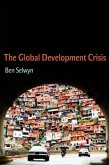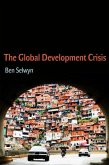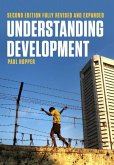With two decades of research behind it, the "invisible economy" of care is a critical area of scientific enquiry and policy action. However, far from being global, much of the public debate has been limited to advanced industrialized countries. There is extensive scholarly conversation about the care dimensions of Europe's welfare regimes, for example.
Meanwhile, governments in developing countries--where economic restructuring raises perennial concerns about social reproduction, and women's increasing burdens of unpaid care work--are experimenting with new ways of responding to care needs in their societies.
Contributors from a wide range of backgrounds extend our understanding of the care economy in the developing world at a moment when existing systems are under strain and new ideas are coming into focus. Empirically grounded case studies of countries as diverse as China, Nicaragua, India and South Africa shed new light both on existing care arrangements and changing policies. This book offers important insights about what it will mean to provide dignified care in the twenty-first century.
Meanwhile, governments in developing countries--where economic restructuring raises perennial concerns about social reproduction, and women's increasing burdens of unpaid care work--are experimenting with new ways of responding to care needs in their societies.
Contributors from a wide range of backgrounds extend our understanding of the care economy in the developing world at a moment when existing systems are under strain and new ideas are coming into focus. Empirically grounded case studies of countries as diverse as China, Nicaragua, India and South Africa shed new light both on existing care arrangements and changing policies. This book offers important insights about what it will mean to provide dignified care in the twenty-first century.








